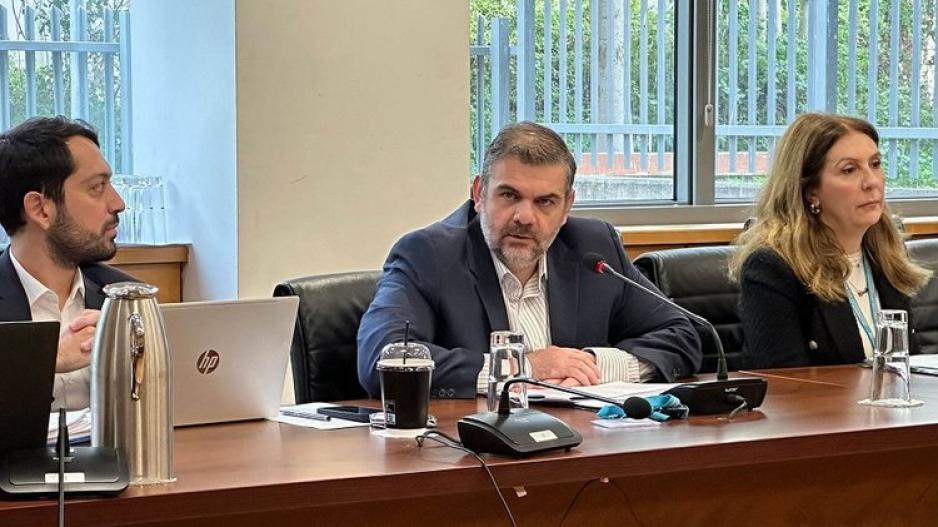“Whatever We Say Is Interpreted Politically,” President of the Fiscal Council Says
The Fiscal Council's Quest for Effective Collaboration and Fiscal Responsibility
There is no established culture of cooperation with the Ministry of Finance, although there is coordination and collaboration with specific individuals in the Ministry, stated Michalis Persiannis, President of the Fiscal Council, expressing frustration that "whatever we say is interpreted politically."
Presenting the Council's 2024 budget to the parliamentary economic committee, and responding to questions about its collaboration with the Ministry of Finance, Mr. Persiannis remarked that while there is no institutionalized cooperation culture with the Ministry, there are individuals willing to collaborate. "At the moment, our cooperation is satisfactory due to specific individuals, with whom we can communicate and coordinate in the Ministry of Finance. However, I can't say the same at an institutional level," he said.
He expressed unease that the Council's statements are often politicized. "We want to be detached from political dimensions. On the other hand, we cannot ignore risks and remain silent, and this is happening," he added.

Regarding the state of the economy and public finances, Mr. Persiannis commented that in the short term, the economic outlook is very positive, with the Ministry of Finance maintaining control over public finances.
He reiterated his concern about the increase in inflexible state expenditures, stating that they "primarily deprive any government of the fiscal space to exercise policy," especially entering a year of great uncertainty with predominantly external developments.
He anticipates an increase in inflexible expenditures, expressing concern that the revenue growth rate may not be as high as estimated.
Moreover, the President of the Fiscal Council emphasized long-term concerns over the management of the Social Insurance Fund, with government debt exceeding 10 billion. "It doesn't require immediate resolution, but decisions need to be made as soon as possible," he said, reminding of his previous statement that "the longer decisions are delayed, the more painful they will be."
Mr. Persiannis noted that the issue with the Social Insurance Fund (SIF) is a long-standing practice and not a new development. He viewed positively the activation of an agreement, which provides for interest on loans from the SIF. "This is positive because we want the Ministry of Finance to feel some pain when this action is taken," he said, adding that the projected increase in public debt management costs is mainly due to the 4% payment to the SIF.
Explaining his disagreement with the practice of using the SIF's reserves, Mr. Persiannis pointed out that this "creates distorted incentives and prevents the SIF from making its own investments."
However, both the chair of the Committee, Christiana Erotokritou, and other members supported enhancing the Council's collaboration with both the executive and legislative authorities. "Collaboration with the parliamentary economic committee must be institutionalized," she said.






